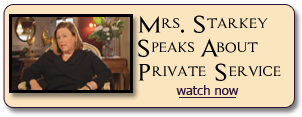Household Employee Overtime: Change Coming
Household Employee Overtime: Change Coming
May 18, 2016
Household employee overtime rules are commonly misunderstood, and often just plain ignored. The vast majority of household employees – nannies, senior caregivers, housekeepers, etc. – are classified as non-exempt (NOT exempt from overtime rules) employees. These household employees must be paid overtime.
 However some more skilled household employees – estate managers, head housekeeper or house managers for example – may be considered exempt or hourly employees. This classification is largely depended on the actual work performed and not on the employee’s title. This is where the change is coming!
However some more skilled household employees – estate managers, head housekeeper or house managers for example – may be considered exempt or hourly employees. This classification is largely depended on the actual work performed and not on the employee’s title. This is where the change is coming!
Salaried employees are paid the same amount every work week regardless of the actual number of days worked or actual hours worked. The primary work performed by a salaried household employee must be supervision, not actually doing (there is an 80/20 rule used in this determination). Today, in general a salaried household employee who is paid $23, 600 per year or more (last updated in 2004) AND has a span of control over two or more employeesAND whose time is primarily spend in supervisory activities may be considered exempt from the FLSA’s overtime rules.
New Household Employee Overtime Rules
Changes are coming, however, and now is the time to prepare. In March 2014 President Obama signed an executive memorandum instructing the U.S. Department of Labor to review the standards defining a salaried, exempt employee. The US DOL has published proposed rules changes in July 2015 that are widely expected to become effective in 2016.
The key change for household employment is the implementation of a formula that sets the minimum annual salary for an exempt (salaried) worker that keeps up with inflation without the need for rules changes. This formula, when adopted, will increase the minimum weekly salary in 2016 to $913 or $47,476 annually. In 2016, a salaried household employee earning between $47,476 and $134,004 annually must meet the supervision tests described above to retain the exemption from overtime. It is assumed that highly compensated employees earning $134,004 or more per year and who “customarily and regularly” perform one of the exempt duties of an administrative, executive or professional employee are generally exempt. The duties requirement is relaxed because a high level of compensation is a strong indicator that an employee is exempt.
When the rule becomes effective December 1, 2016, all household employees who are paid less than $47,476(2016) no matter their duties are hourly employees entitled to overtime.
Written by
Kathleen (Kathy) WebbPresident of HomeWork Solutions, Inc. | Household Payroll & Employment Tax
Reposted from Facebook












